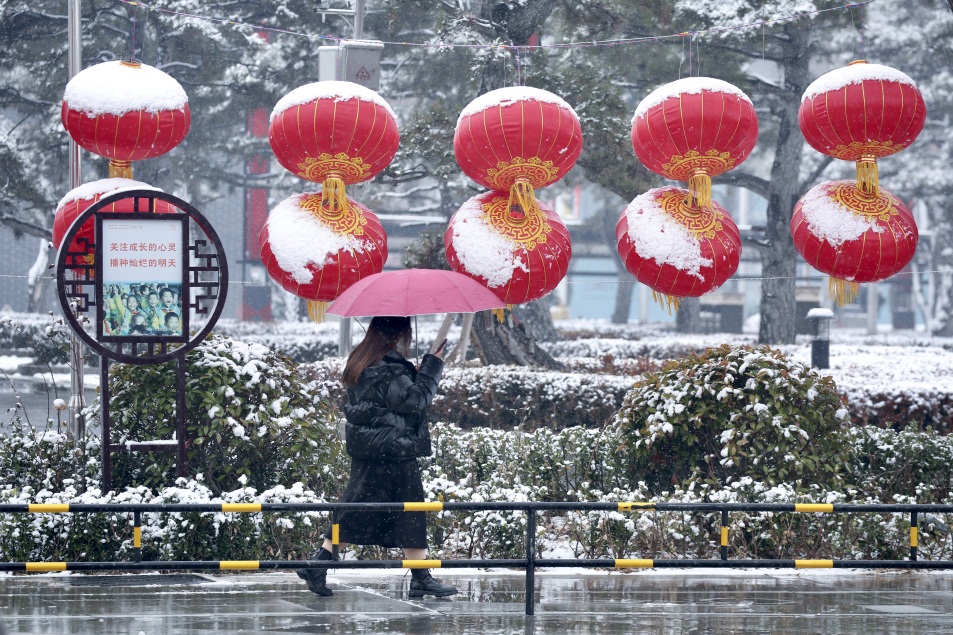Ancient wisdom inspires modern success
When emperors of old would climb Taishan Mountain, China's holiest mountain, they'd reach the 1,532-meter peak and kneel before heaven to pray for a more fertile land.
Thousands of years later, I cross into the East China province of Shandong at over 300 kilometers per hour aboard a state-of-the-art bullet train with my own mountain to climb. Sadly, not Taishan Mountain. Instead, I want to understand the modern identity of Shandong itself, an area shaped by its spectacular geography and rich cultural heritage and history.
As the train begins its approach to the provincial capital Jinan, factories and oil wells pop up out of the rugged landscape like intricate industrial trinkets of progress across a land that has learned not just to rely on its history, but move with the times too.
Today, Shandong is the third-richest province in China, after Guangdong and Jiangsu, and is an industrial leader in oil, minerals and energy.

From the peak of Taishan Mountain, stretching across expansive plains to the Yellow and Bohai seas, Shandong is a place of contradictions and vast differences which somehow exist in harmony.
It is a place where Confucian proverbs stand side-by-side with high-tech industry and innovation.
It is a place of deep natural beauty and fierce industrial competition. And yet, seemingly, a balance is struck between the two sides, like the husky tones of the Yellow River blending with blue water as it empties into the ocean.
Perhaps this see-saw act can best be embodied by Shandong's two most famous sons, Confucius and Sun Zi.
Born in Shandong in the fifth century BC, Confucius was a teacher and philosopher who taught people how to live according to moral virtues and unselfishness - themes which recur in the province's many temples and historic sites.
Sun Zi was a general and military strategist born 10 years after Confucius and who is famous for writing the widely influential book The Art of War - which today has a deep impact on businesses in the province.
Both men have had a profound influence on Shandong - Confucius' teachings extoling the benefits of altruistic wisdom and learning, and Sun Zi inspiring businesses in the region to get an edge, push forward, be creative and achieve success in the battlefield of business.
After visiting enterprise after enterprise across Shandong, I realize just how important the history and culture of the province have been in the success of many - from heavy vehicle manufacturer Sinotruk's headquarters in Jinan, where the production line works as efficiently as a squadron of highly-trained soldiers, to a solar farm in Dongying, where the panels play a symbiotic role with nature, aiding the growth of sea cucumbers.
When those emperors prayed for fertile lands all those centuries ago atop Taishan Mountain, little would they have known just how fertile that land would become.
The author is an editor at China Daily and his email is owenfishwick@chinadaily.com.cn
(China Daily 07/14/2017 page12)

 Shandong: Where Excellence is made
Shandong: Where Excellence is made Building a Moderately Prosperous Society: The Tai'an Way
Building a Moderately Prosperous Society: The Tai'an Way Video: Jiunvfeng Park
Video: Jiunvfeng Park

